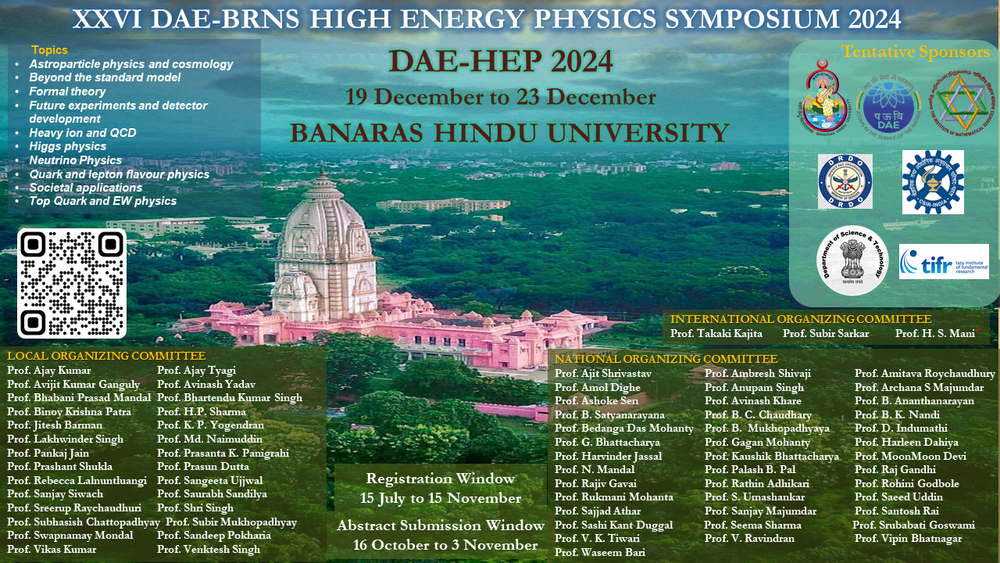Speaker
Description
Worldwide, there is significant ongoing research dedicated to the experimental search for neutrinoless double beta decay (0$\nu\beta\beta$). The reason lies in the fact that the most sensitive experimental avenue to determine if neutrinos are Majorana particles is through the search for 0$\nu\beta\beta$, which further offers insights into the absolute mass scale of neutrinos and the mechanism behind mass generation. The forthcoming 0$\nu\beta\beta$ experiments target the detection of signals within the inverted mass ordering and advancing their sensitivity into the normal ordering regimes. Prior to the execution of experiments, we undertake a quantitative assessment of the projected experimental sensitivity, focusing primarily on the discovery potentials. We analyze the sensitivity of the counting method using full Poisson statistics [1] and compare the results with those obtained from its continuous approximation. Sensitivity can be further improved by incorporating additional measurable signatures, such as energy, which is accounted for in a maximum likelihood analysis [2]. Our research highlights a practical approach for assessing the potential sensitivity of future 0$\nu\beta\beta$-projects based on their anticipated backgrounds before their execution.
References
[1] M. K. Singh et al. In: Phys. Rev. D 101 (1 2020), p. 013006.
[2] M. K. Singh et al. In: Phys. Rev. D 109 (3 2024), p. 032001.
| Field of contribution | Phenomenology |
|---|
